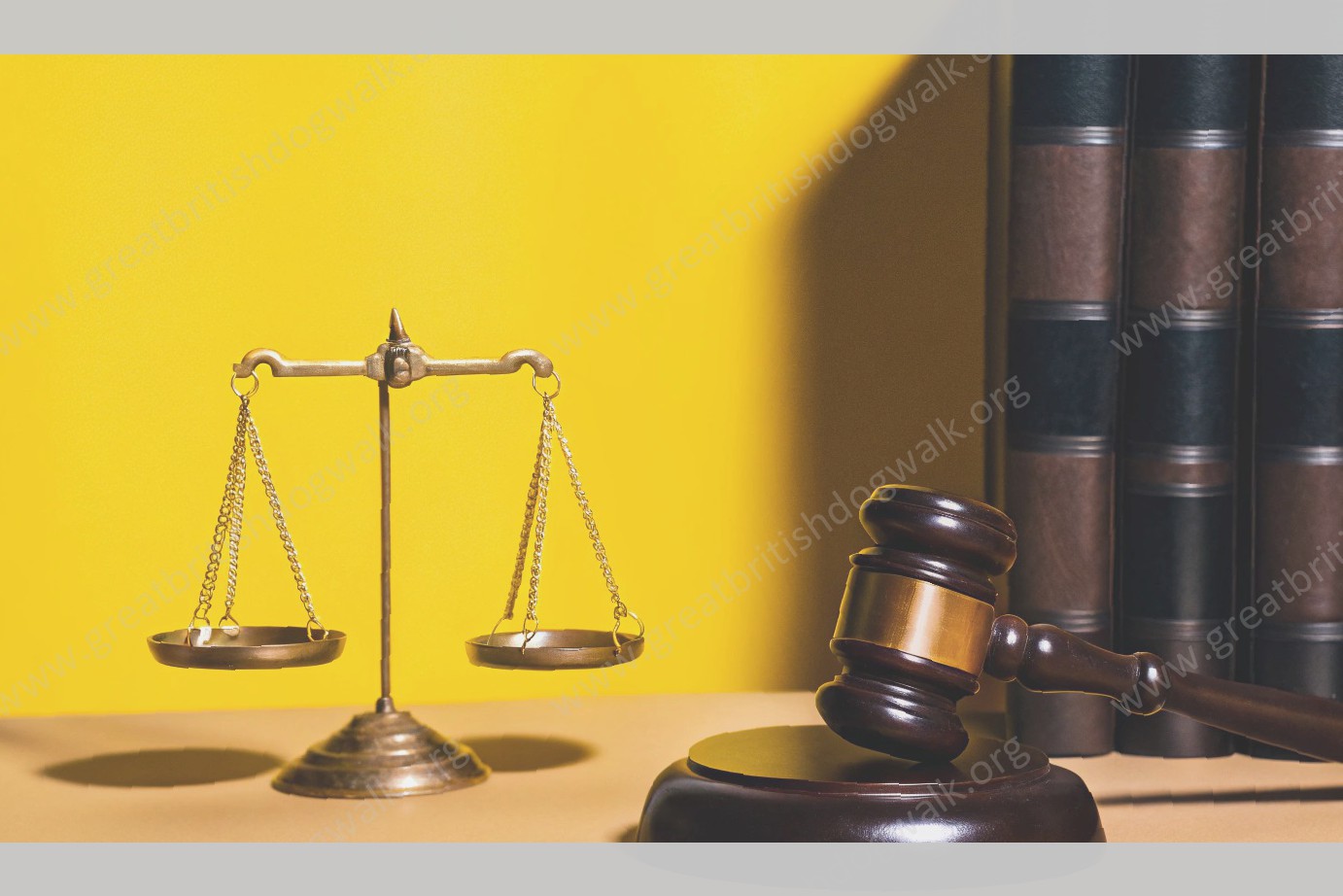What Does “Under the Law” Mean
"Under the Law" is a phrase that is frequently used in legal contexts, often carrying specific and narrow meanings. Depending on the jurisdiction and applicable statutes, the legal meaning of "under the law" may be broad or quite narrow. For example, "under the law" can refer to people, events, or objects that fall under the specific provisions of a statute or other law, such as: "X excluded people under the law" or "X occurred under the law."
In many instances, "under the law" refers to (in a broad context) protections or obligations that are imposed by laws such as criminal laws, civil laws, regulations, codes, administrative rules, and common-law decisions. As a related example, in the medical malpractice field, the Kentucky Supreme Court found that "under Kentucky law" means "within technical terms used in our statutes." See HCA Health Services of Kentucky, Inc. v. Miller, 19 S.W.3d 809, 815 (Ky. 2000).
As a general example, in the context of workers compensation laws and benefits, the United States Supreme Court has stated in a case involving Section 1(b) of the Longshore and Harbor Workers’ Compensation Act (the "LHWCA") that "employees under the LHWCA must be seeking compensation for a work-related injury to qualify for compensation themselves . " California v. Cline, 461 U.S. 421, 431 (1983). Under the LHWCA, private ships are liable to reimburse the U.S. government for workers’ compensation payments that the Federal Employees’ Compensation Act ("FECA") makes to an employee covered by both the LHWCA and FECA. In Cline, the Supreme Court determined when such reimbursement was appropriate, finding that "an employee who has been discharged from his position covered by title 33, but files for workers’ compensation benefits under that title for an on-the-job injury occurring prior to discharge and without any regard to whether he will return to work, is seeking compensation under title 33 and thus does not fall within the § 905(a) exclusion." Cline, 461 U.S. at 425.
Interpretations of "under the law" effectively change according to the context in which they are used; however, the interpretations generally apply broadly to objects, people, and events that are covered by statutes or other laws.

Historical Background of “Under the Law”
On the origins of the concept ‘under the law’, it has been used in most legal systems throughout history. The term ‘sub lege’ was used in the Roman Republic to refer to the people who were subject to the authority of elected officials (and also to ancillary legal personalities, such as slaves). The extent of this delegation of legal power was determined by the citizenry, who elected to whom certain prerogatives. As a result, certain officials, such as the Senate, had prerogatives that would need to be exercised with caution, since they affected the whole population. However, a citizen could elect to transfer prerogatives to an official with less far-reaching prerogatives. ‘Under the law’ in this context meant adopting the authority of a magistrate and being subject to his actions; while a magistrate undertook to exercise the prerogatives of citizens only for the good of all citizens and under the auspices of the people.
A very similar use of ‘under the law’ can be found in the Anglo-Saxon tradition. However, the power of the elected officials was circumscribed by the fact that, at least in principle, the sovereign (that is, the citizenry) always retained the ultimate authority. In contrast to the Roman tradition, the election of officials did not affect the sovereign entitlement to use the prerogatives that were transferred. The voter did not necessarily lose the prerogative vested by the vote; if a responsible choice was made, the vote awarded the official the prerogative of overseeing a certain activity.
Another early example of ‘under the law’ is the figure of the serf, the legal status of agricultural labourers in medieval Europe. The serf was a free person, who was considered subject to the law of a lord, under the protection of a powerful person. Because of this protection, he/ she was also subject to the corresponding prerogatives of this protector, who wielded not only authority over him/ her, but also delegated prerogatives that affected the serf’s land and goods. Thus, the serf was removed from mere status of victim of the marauding kings of the time, to a status where the threat posed by the king to be overwhelmed and plundered was deemed to weigh less than the threat posed by the lord. And before the consolidation of the king as the only source of order, such reasoning could well be considered reasonable from the serf’s perspective, satisfying the interest of the serf to avoid being overwhelmed.
Both the Roman and the Anglo-Saxon traditions most directly dealt with the power of the elected authorities over the subjects. In contrast, the serf is a perfect example of the history of the concept of the ‘law’ as a source of order, which is an absolute priority in most, if not all, languages and legal systems. The brutal plundering of the lands by marauding kings led the choice of electing the belonging of the serf to be deemed preferable, and such priority is a theme that still remains in many current debates on social justice today. On the other hand, neither of the many modern constitutional developments, from the advent of democracies to the invigoration of the political constitutions of socialist countries, have strongly questioned the democracy as the only source of order, and that the law is derived therefrom; a byproduct of the democracy that, again, is hardly challenged, is the notion of subject.
The Importance of “Equality Under the Law”
The significance of the phrase "equality under the law" is significant in modern legal systems around the world. Historical scholars trace the phrase back to Ancient Greece, around the time of its emergence as a modern legal term in the 11th Century. Today, the phrase "equal protection under the law" is guaranteed by the 14th Amendment to the U.S. Constitution. In the United States, this phrase is one of the most often cited legal principles in court cases, with several Supreme Court cases focused on the meaning of the under the law principle.
One of the main reasons these principles have become so integral in legal speak is because of its universal meaning that is clearly outlined and serves as an accurate description of its intent. In practical application, it means that everyone is treated the same in accordance to the law, regardless of their race, gender, age, or religion, and is a key aspect of modern legal systems’ foundation.
Practical Examples
The phrase "under the law" is employed in a wide variety of legal contexts, arising in both civil and criminal cases. In each context, the phrase has specific, legal significance.
Employment law. In civil rights cases, the phrase "under the law" often arises when assessing whether a company or individual has acted in a way that is considered reasonable under the law. To satisfy the legal obligation to provide a workplace free from discrimination, harassment, and retaliation under Title VII of the Civil Rights Act of 1964, an employer must take "prompt and appropriate action" to correct any unlawful behavior. Accordingly, courts will consider whether a company reasonably investigated a discrimination or harassment complaint by asking whether the investigation was objectively appropriate "under the law." They will also consider whether the remedial action taken was appropriate by looking to see what a reasonable employer would do under the circumstances.
Administrative hearings. The phrase is also used in administrative proceedings. An administrative law judge may, for example, hear a complaint from an employee who alleges that she has been subjected to discrimination under the provisions of Title VII. After a hearing, and based upon the evidence presented, the ALJ must decide whether the complainant has been discriminated against under the law. See, e.g., EEOC v. Murphy Motor Freight, Inc., ARB Case No. 96-150. (Sec’y Feb. 21, 1997).
Criminal law . Also operating within the realm of employment law, "under the law" is used to demarcate between a private citizen’s right to use reasonable force to defend herself from an attacker in self-defense, and a police officer’s right to enforce the law using deadly force. A police officer who unlawfully kills a fleeing suspect who presents no immediate threat to the officer—despite the cessation of active resistance to arrest—could be charged with wrongful death, involuntary manslaughter, or a shooting contrary to law, depending on the facts of his actions before and during the shooting.
Inference and the "reasonable person." Courts may then infer from the language of a particular statute the degree to which it is intended to extend the law up to and through persons and/or institutions that are "under the law," or else exempt those parties, having determined that law’s scope. The standard applied is an objective one, as seen in the separate but related issue of statutes of limitations: E.g., Hudik-Telier v. Sullivan, 159 F.Supp.2d 464, 471 D. Mass. 2001). A typical application of this reasoning is seen in cases of police brutality where excessive force has been brought against non-black pedestrians and motorists in recent incidents in cities across the country. The use of deadly force with the intent to kill or inflict serious bodily injury, even when it results in death, may not invoke these types of statutes because the party against whom it has been invoked is a police officer, acting in the course of his legitimate duties, rather than a private citizen deemed to be "under the law."
Issues and Controversy
When it comes to the interpretation of "under the law," one major challenge concerns the extent to which its meaning may be affected by context. This issue has been best illustrated by a second-year seminar paper written by Samuel S. Shaffer in 2016 at the University of Georgia School of Law. Shaffer discussed the different ways that "under the law" is interpreted in disparate areas, including treaty obligations, consumer privacy regulations, and corporate mergers. He argued that "the correct understanding of statutory construction for [the statutory scheme] in question will largely depend upon how the law is used in practice." To illustrate how context changed the meaning of the phrase, he pointed out that the Supreme Court interpreted "under the law," as enacted in the context of federal treaties, to mean among nations. However, "in the context of state law," it meant "under the local jurisdiction." Thus, Shaffer’s seminar paper calls for a more nuanced understanding of the term.
Another important controversy surrounding the phrase "under the law" relates to the Fair Credit Reporting Act (FCRA). The FCRA requires that user information also known as consumer information be protected by companies. In addition, the FCRA provides consumers with an opportunity to dispute inaccuracies in their credit reports. Unfortunately, many companies fail to investigate and resolve complaints submitted by consumers. For example, in 2015, the United States District Court for the Northern District of Ohio decided Herrera v. Union Select Medical Center, LLC. In this case, the plaintiff filed a lawsuit against her employer and Equifax Information Services LLC, a consumer reporting agency. She alleged that the defendant "failed to conduct a reasonable investigation into the accuracy or validity of the Plaintiff’s disputing challenges raised under the FCRA" (Herrera v. Union Select Medical Center, LLC, 2015). The court noted that although the defendant conducted an investigation, it not thorough enough to comply with the requirements under the FCRA. The court found the plaintiff’s claim for damages meritorious and awarded her $19.8 million for her claims under the statute.
International Viewpoints
The phrase "under the law" is not exclusive to the United States. The phrase has been adopted into the laws or constitutions of several other countries. For the purposes of forming a more complete understanding of the meaning of "under the law," the manner in which the phrase is utilized in different countries and cultures should be examined.
France
Contrary to the United States Constitution, the French Constitution of October 4, 1958 states: Article 1: France shall constitute an indivisible, secular, democratic and social Republic. It shall ensure equality before the law for all citizens without distinction of origin, race or religion. It shall respect all beliefs. It shall be free from any discrimination based on national origin, race or religion. It shall respect all beliefs. It shall be independent of all forms of dependency with regard to or in the name of any religion. It shall work for the promotion of the different cultures of France within the framework of national unity. It shall guarantee the equality before the law of all citizens, without distinction as to gender, origin or religion, and respect for the pluralistic character of its community.
Germany
The German Constitution of May 23, 1949 (Basic Law for the Federal Republic of Germany) states: Article 3: (1) All persons shall be equal before the law. (2) No person may be favored because of his sex , parentage, race, language, homeland and origin, faith or religious belief, or because of his disability. (3) Persons with disabilities shall have the same right to special respect and protection by the State and society as the other human beings. (4) No one may be prejudiced because of his opinion, even though it is contrary to the constitutional order or the moral. Nor may he be prevented from expressing his opinions and to have recourse, in cases provided for by the law, to the court for the protection of his right.
Finland
The Finnish Constitution states: Section 6 Equality and non-discrimination Everyone is equal before the law and treated equally as individuals. No one shall be treated differently based on gender, age, language, origin, religion, opinion, education, profession or position or other reasons without an acceptable reason.
Canada
The Canadian Charter of Rights and Freedoms states: Equality Rights 15.(1) Every individual is equal before and under the law and has the right to the equal protection and equal benefit of the law without discrimination and, in particular, without discrimination based on race, national or ethnic origin, color, religion, sex, age or mental or physical disability.


